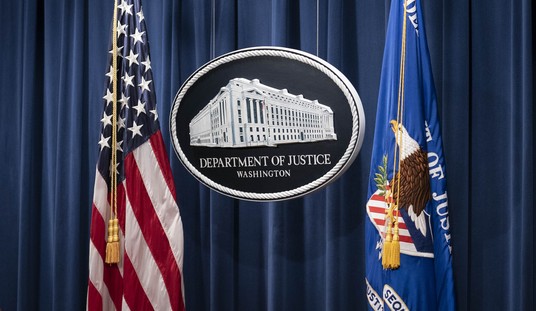Michael Brown:
https://www.youtube.com/watch?v=FHxXGvXQrno
Eric Garner:
https://www.youtube.com/watch?v=t5S2qRcO8Qw
The two men could not be more different. Brown died after robbing a liquor store and initiating confrontation with police. Garner, a father, died during an arrest for selling loose cigarettes on the street.
Unfortunately, Al Sharpton and the mobs he whips up ignore the difference in favor of a distracting similarity: the men were black. That is the beginning and end of their analysis.
This is a tragic blow for those who see the need for reform in law enforcement tactics, particularly militaristic tactics and the abuse of asset forfeiture laws.
The movement had been gaining some traction. Senator Rand Paul – a potential presidential candidate – has spoken negatively of no-knock warrants in which police storm homes in the dead of night without announcing themselves, as if they were taking Taliban strongholds. The Washington Post ran an excellent six-part series on how some law enforcement agencies use targeted asset forfeiture as a piggy bank. Public opinion showed support for police wearing body cams while on duty.
However, mass movements need a face.
Rosa Parks served this function with the civil rights movement. Parks was an icon around whom Americans could galvanize. Americans from all stripes of life could understand the plight of a tired woman wanting to sit at the front of the bus.
Similarly, Eric Garner might have served the same function for those examining law enforcement tactics. A father dying for the unpardonable sin of selling single cigarettes brought Left and Right together. The possibility for reform looked real.
Then Al Sharpton showed up, the ashes of Ferguson’s riots still on his suit. Suddenly, Mr. Garner’s death changed from a discussion of police tactics to the Sharpton Show.
My mom always said birds of a feather flocked together. Sharpton is not a man with whom most people would want to fly.
After all, losing weight and trading in the track suits does not change the fact that Sharpton is the man behind the Crown Heights riots and Freddie’s Fashion Mart and their associated deaths. He is the man who refused to pay the civil damages for his role in Tawana Brawley’s false rape accusations and is notorious for failing to pay his taxes. This is the last man any serious reform movement wants flying its flag, and his inserting himself into the debate risks the destruction of bipartisan support.
Moreover, Sharpton’s obsession with race derails any serious discussion of reform because he ignores true horror stories if the victims lack the right skin tone.
In Georgia, Bounkham “Bou Bou” Phonesavanh, a toddler, had his nose blown off during a no-knock raid when a flash bang grenade was tossed in his crib. As an added tragedy, Bou Bou’s home was targeted accidentally, based on information provided by a man who had never entered the premises.
In California, Kelly Thomas died after being beaten by police officers in Fullerton. His final cries for his father’s help were caught on tape.
Either of these individuals could serve as the calling card for reasonable reform of law enforcement tactics. When seeing a picture of Mr. Thomas or little Bou Bou, you can anticipate mainstream Americans would listen. Tactics such as invading homes on the unsupported word of an informant would face scrutiny. Police might receive better training on how to effectively manage the mentally ill.
However, an Asian child or a white homeless man don’t advance the narrative of a war on blacks and are thus useless for raising funds or political support. This highlights the fatal error in focusing on race.
Further, the racialist rhetoric of “us-versus-them” makes reform a zero sum game. Police feel under attack, any ground given a tacit admission that they really are racists. Neighborhoods see police as bad guys.
In New York, the deaths of Rafael Ramos and Wenjian Liu directly resulted from their killer’s desire to “avenge” the deaths of Eric Garner and Michael Brown.
As the officers’ deaths are rightly mourned, sensitivity mutes debates. Further, police rationally increase their vigilance and suspicion of those around them, worsening relations with the public they serve.
The civil rights movement taught us that real change requires broad swaths of the public coming together to pose a check on the abuses of power. That sort of consensus cannot come from those who hoard racial grievances like currency, to spend for their own advancement.
https://www.youtube.com/watch?v=S7KEarmLOx4
Reform cannot come as a result of racialist division. Unfortunately, for Sharpton and his ilk, “us against them” is a feature and not a bug in their business model. The second that they begin treating law enforcement abuses as something other than a concerted campaign against blacks, their shtick loses its effect.
That would spell disaster for the opportunists. The politics of division yields dividends. Sharpton has a television show – even if it’s on MSNBC – and pals around with the president. Although he doesn’t pay his taxes, the amounts he owes speak of serious income.
All it costs is the creation of a vicious cycle. Reform is stalled, a new incident occurs and the mobs descend, again drowning out the voices of reason. Things stay the same.
In order to move forward, reformers must marginalize the racialists. They must ignore Sharpton whenever possible and denounce him whenever necessary.
The future will belong to those who convince Americans to embrace the better angels of their nature, not those who denounce white devils.
****
image illustrations via Wikipedia, a katz / Shutterstock.com and here, and here.













Join the conversation as a VIP Member